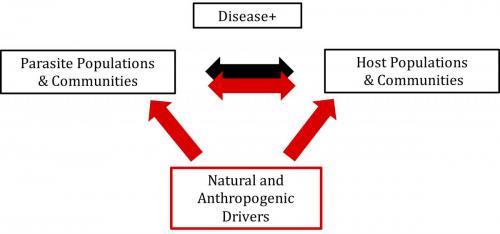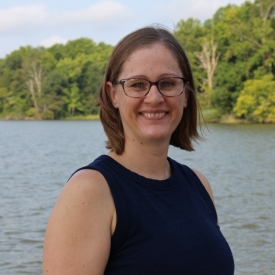Parasitism refers to a complicated relationship between two organisms, where one benefits and the other is harmed. The Coastal Disease Ecology Laboratory at SERC conducts research at the intersection of disease and parasite ecology, examining multi-parasite and multi-host systems across habitats and geographic regions. We examine patterns of aquatic parasite diversity, the host and habitat specificity of parasites, the ecology of multi-host systems, and the genomic and genetic population diversity of different species and strains of parasites. This research incorporates a wide range of parasite and host phyla, and examines the role of environmental reservoirs in the ecology and epidemiology of disease.
More specifically, research in the Coastal Disease Ecology Laboratory examines:
1) Parasite Biogeography: Shifting Baselines
2) Parasite Diversity and Foundation Species
3) Parasites and Trophic Interactions
4) One Health in the Coastal Zone

If you are interested in supporting our research, financial contributions can be made here, with the specification "Coastal Disease Ecology Laboratory".





